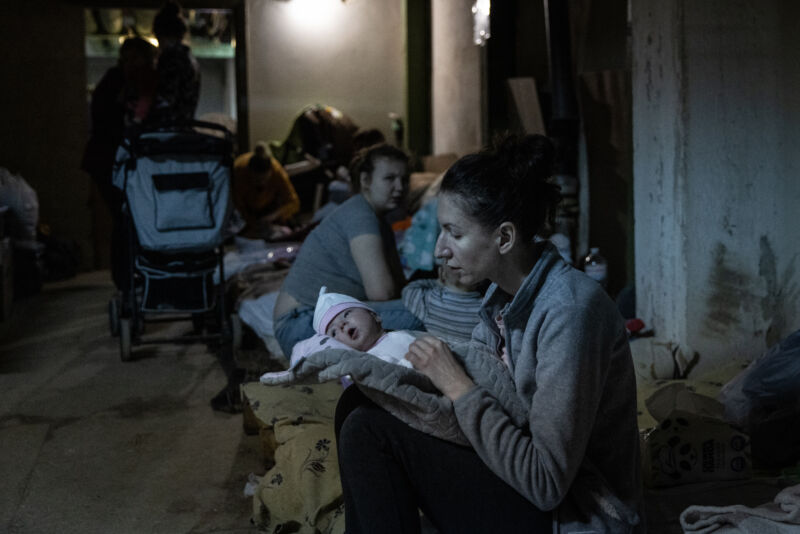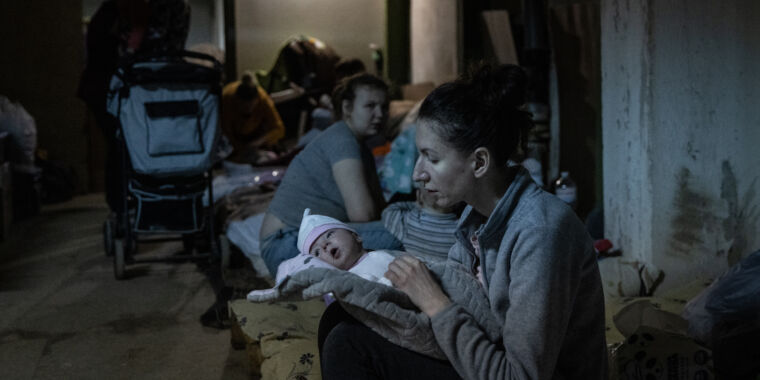
The World Health Organization on Wednesday said Russia is in violation of international humanitarian law based on several reported attacks on Ukrainian hospitals and health workers.
Several of the reports are unconfirmed, but in at least one confirmed case, a hospital came under a “heavy weapons attack” that killed four and injured 10 others, including six health workers. WHO Director-General Dr. Tedros Adhanom Ghebreyesus said the agency is working to confirm several other reports.
“The sanctity and neutrality of health care—including of health workers, patients, supplies, transport and facilities—and the right to safe access to care, must be respected and protected,” Tedros said in a press briefing Wednesday. “Attacks on health care are in violation of international humanitarian law.”
Throughout Wednesday’s briefing, Tedros and other WHO officials—including the head of WHO’s Ukrainian office, Dr. Jarno Habicht—raised alarm over the growing health and humanitarian crisis in Ukraine as the Russian onslaught continues into its seventh day. Once again, officials pleaded for a safe logistical corridor to distribute medical supplies already within Ukraine and to deliver additional supplies from outside the country.
“There is an urgent need to establish a corridor to ensure humanitarian workers and supplies have safe and continuous access to reach people in need,” Tedros emphasized.
Logistics
As reported previously, Ukrainian hospitals are in desperate need of medical oxygen, with some facilities already running out. “You can’t wait until tomorrow for oxygen, you can’t wait until next week, you can’t be put on a waiting list for oxygen, you can’t stand in a cue for oxygen,” Dr. Mike Ryan, executive director of the WHO’s Health Emergencies Programme, emphasized in the briefing. “Oxygen saves your life right now, and when you need it, you need it.”
Though at least three of Ukraine’s major oxygen plants have shut down amid the attacks, there are some supplies still within the country that could be distributed. Habicht, in Ukraine, said that the problem is that officials can’t get the remaining reserves safely to the hospitals that need them. It’s a problem of safe passage, he said, echoing the calls from Tedros. “Under the current situation, it’s difficult to find drivers who are willing to drive and to bring the oxygen from some of the factories that still have reserves” to the hospitals in need, Habicht said. He also reported that hospitals are running low on basic surgical supplies, as well as cancer treatments and insulin.
Like the oxygen, some of the needed supplies are already in Ukraine, but they are inaccessible due to the violence. Habicht noted that the local WHO office—which has been working to bolster the country’s health system for years—had prepositioned supplies in warehouses and 23 hospitals. For instance, a warehouse in the capital of Kyiv is full of supplies. But the supplies are currently inaccessible.
Meanwhile, the WHO is also trying to get Ukrainian health care facilities more trauma and emergency medical supplies. A shipment of 36 metric tons of those supplies will move out from the agency’s hub in Dubai and arrive in Poland tomorrow. But the ultimate fate of the delivery is still unclear given the lack of safe passages in Ukraine.
The equipment list includes “sutures, skin graft equipment, equipment for doing major surgery, unfortunately equipment for doing amputations, for bone grafting, for bone wiring, for all of that,” Ryan noted. “I think this gives you the graphic nature of what’s happening. These are ordinary civilians being broken, and the health system is going to have to put them back together again.”








